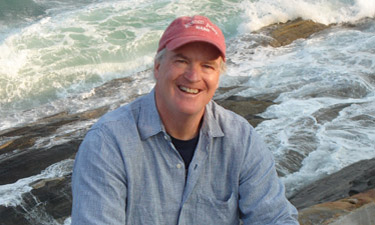 Not all elections are equal—some count more than others. While only history will tell for sure, the 2012 national elections could well be the most important to come along in a long time. The range of possible outcomes was wider than ever—from a Republican sweep of the White House and both chambers of Congress to Democrats keeping the White House and strengthening their numbers in the House and Senate. As late as Tuesday evening on November 6, a Republican surge seemed quite doable.
Not all elections are equal—some count more than others. While only history will tell for sure, the 2012 national elections could well be the most important to come along in a long time. The range of possible outcomes was wider than ever—from a Republican sweep of the White House and both chambers of Congress to Democrats keeping the White House and strengthening their numbers in the House and Senate. As late as Tuesday evening on November 6, a Republican surge seemed quite doable.
Regardless of how you felt about the outcome on Wednesday morning, the political landscape has changed in ways that even weeks later seem surprising. The collective voice of those who supported President Obama for a second term made it clear that government does have an important role in securing and improving the lives of 100 percent of Americans. Telling Americans in this populous, complex, diverse, and rapidly changing society that it’s every man, woman, and child for themselves in an oddly perceived trickle-up economy fell resoundedly short.
While the field of parks, recreation, and conservation can take comfort in the prospect of continued national support for our mission, no one should get comfortable, either. Just because the country voted for a more supportive form of government doesn’t make the prospect of the fiscal cliff and all its economic ramifications any less likely. Even in the best of outcomes in Washington over the coming months, two things are certain: federal monies will be scarce and the competition for them will be fierce. In fact, there may never have been a more important time for the field of parks and recreation to advocate at every level.
Every year about this time, I reminder readers of Parks & Recreation of their best opportunity to learn about the political landscape and then do something about it: NRPA’s annual Legislative Forum to be held March 19-21 in Washington, D.C.
I’ll leave you with this information on the power of such conferences. According to a report from the Congressional Management Foundation which surveyed staff in Congressional offices, the most influential advocacy strategies for swaying an undecided member of Congress depend on personal communications from constituents. Whether individuals make contact face-to-face, by phone, or through personalized email or postal mail, senators and representatives are influenced by their constituents’ own views about the public policy issues before them. Most of the staff surveyed said constituent visits to the Washington office (97 percent) and to the district/state office (94 percent) have some or a lot of influence on an undecided member.
That’s the power of advocacy.
Phil Hayward
Editor

